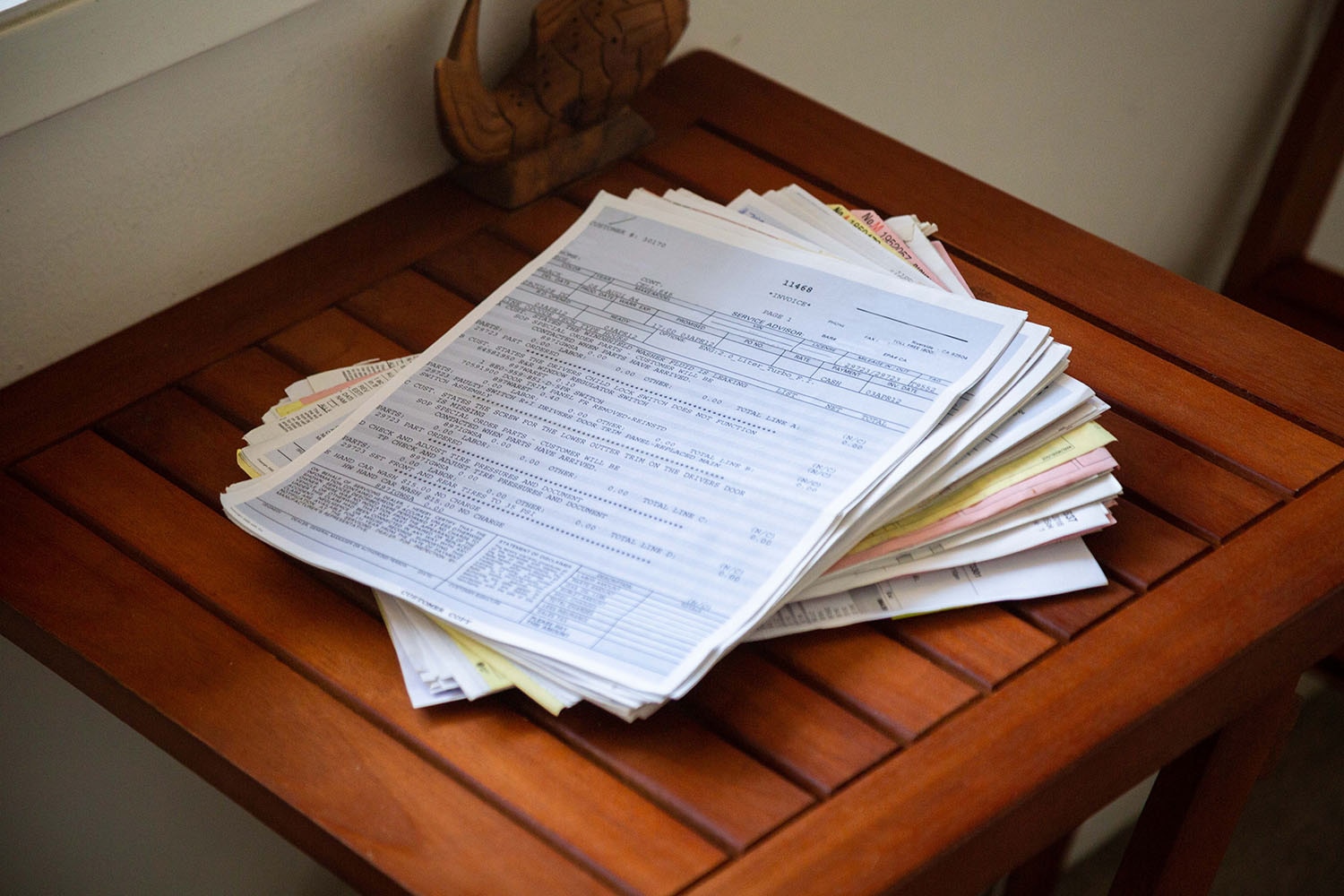Here's Why It's Important To Keep Your Car's Service Records
Service receipts are a vital look into your car's past, and they can improve its resale value.
 Manuel Carrillo III/Capital One
Manuel Carrillo III/Capital One
Article QuickTakes:
A service receipt with a big number at the bottom may be the last thing you want to remember from your car’s last visit to a mechanic or repair shop. However, that itemized record contains a lot of information that could prove handy down the road, and it may even make your car more appealing to a new owner when it comes time to sell it.
Why should I keep my car’s service history?
Think of your car’s service history like the medical history your doctor’s office has on file. These papers provide a glimpse into what maladies your car may have suffered over the years, and they also show how often you’ve had regular scheduled maintenance performed. They’re a reliable record of your car’s history and of how well you’ve cared for it over the years.
Just as a doctor might consult your records, a qualified mechanic or dealership service department can skim through your car’s history. This can be especially useful if you don’t always use the same mechanic when you have your car repaired. One shop may be able to easily access all of your car’s repairs and service through their computer system, but they probably won’t have access to work done by another facility.
Mechanics may look through service records to help narrow down what repairs have already been performed. For instance, if your car is having a hard time starting even though one shop replaced the starter a few months ago, a different repair facility may be able to cross that potential problem point off of their list. This could save you money, since car repairs can sometimes be a process of elimination.
How a car’s service history can affect its private-party value
Imagine you’re a used-car shopper and you’ve narrowed down your list to two nearly identical models. They’re the same color, have similar options and miles, and appear to be in about the same shape. One sale is accompanied by a stack of records, while the other only includes two keys and a title.
You know which one you’d pick: the one with the service history. That paper trail helps confirm that the car had regular oil and fluid changes, and that its repairs were logged.
“While they don’t guarantee a problem-free used-car ownership experience, service records show that the vehicle has not been neglected and has gotten the maintenance it needs to help ensure its long-term reliability,” said Ed Kim, President and Chief Analyst at AutoPacific. “That’s definitely worth a premium, as proper servicing reduces the chances of expensive repairs down the line.”
A neatly organized folder or binder shows extra care, which may make your car’s prospective new owner even more likely to close the deal.
Are there any privacy concerns to keeping a car’s service history?
If you are concerned about subsequent owners tracking you down, it can be a safe practice to remove your name, address, phone number, and email from any records before transferring them to the next owner. Physically cutting out these sections or using an identity theft protection roller stamp is more effective than marking them out with a pen that may still leave some information visible.



